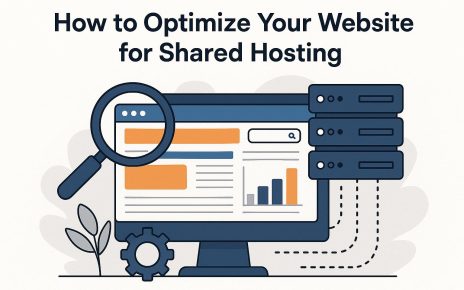The Functionality of cPanel
cPanel is a well-known web hosting control panel that offers users a powerful graphical interface combined with automation tools aimed at simplifying the complex process of hosting a website. By design, it is user-friendly, enabling both seasoned web developers and beginners to manage their hosting environments with efficiency. For anyone involved in managing a hosting account, having a deep understanding of cPanel can lead to more effective and productive website management.
Streamlining Website Management
The primary benefit of using cPanel is its potential to streamline the management of multiple website aspects. Through a simplified user interface, individuals gain access to functionalities that cover significant areas such as file management, database handling, email account management, and security settings. This cohesive integration of features ensures that the challenges associated with managing different website operations are considerably minimized.
File Management
File management is a fundamental component of website administration, and cPanel provides robust tools in this regard. The File Manager is an instrumental tool that enables users to freely navigate the website’s directory structure without relying on additional third-party FTP software. Users can effortlessly upload, edit, and delete files, making routine tasks like introducing new media elements or updating HTML files straightforward. This level of access and control is crucial in maintaining an up-to-date and well-functioning website.
Database Handling
Database management is another critical functionality offered by cPanel. It features a straightforward interface designed to facilitate effective management of databases, supporting popular database management systems such as MySQL and PostgreSQL. Users can create new databases, manage existing ones, and modify them as needed, including making changes to user permissions. The included tool phpMyAdmin enhances this management by simplifying complex tasks like running queries, importing/exporting data, and overseeing table structures, thereby providing comprehensive control over data processes.
Email Account Management
Comprehensive email account management is a key feature of cPanel, making it easy for users to handle all email-related tasks tied to their domains. Setting up new email addresses, configuring forwarding options, and setting autoresponders is simple and efficient within the platform. Additional features focus on security and deliverability, providing settings to manage spam filters, email authentications, and other features critical to maintaining secure and effective email communication associated with your domain.
Security Features
Security remains a pivotal concern in the realm of web hosting, and cPanel addresses this with an extensive set of features aimed at protecting your websites. Through the control panel, users can install SSL certificates to encrypt data, configure firewalls to manage inbound and outbound traffic carefully, and maintain secure shell (SSH) access for safe server management. These tools enable website owners to ensure their online environments remain secure from unauthorized access and other potential threats.
Resource Monitoring and Statistics
Beyond basic operational management, cPanel equips users with tools designed for resource monitoring and statistic gathering. Built-in applications such as AWStats and Webalizer provide detailed analytics regarding traffic data, visitor tendencies, and bandwidth consumption. Such analytics are invaluable for analyzing website performance, enabling users to identify issues and potential areas for optimization effectively.
Automation and Scripting Support
Support for automation and scripting is another critical aspect of cPanel, providing pathways for optimizing and automating repetitive tasks which can significantly enhance operational efficiency. The Cron Jobs utility is a prime example, allowing users to schedule scripts to execute automated functions like database backups and regular maintenance tasks. This reduces the manual workload on users and ensures repeated tasks are executed on time and with precision.
Conclusion
In conclusion, cPanel stands out as a comprehensive tool essential to managing hosting environments efficiently, thanks to its wide array of functionalities which streamline complex tasks associated with website management. Its intuitive interface, combined with a rich mix of features, makes it a crucial resource for handling everything from file systems and email accounts to databases and security configurations. For those looking to leverage cPanel’s capabilities, numerous hosting providers include it within their service packages, and more detailed information can be easily attained via hosting provider resources.




